How Can We Help Patients With Functional Voice
Disorders Find Their Voice Again?
Presented by Sarah Baar and Adam T. Lloyd

12-Month Subscription
Unlimited access to:
- Thousands of CE Courses
- Patient Education
- Home Exercise Program
- And more
Audio Runtime: 43 Minutes; Learning Assessment Time: 21 Minutes
Join host Sarah Baar as she welcomes Dr. Adam T. Lloyd, a clinical assistant professor in otolaryngology and vocal performance at the University of Miami Health System. With his unique background as a professional singer and expert in voice disorders, Adam shares his passion for helping individuals with functional voice disorders regain their voice and confidence. Together, we explore the latest research, essential assessment strategies, and evidence-based treatments that SLPs like you can implement in your practice. Don’t miss this engaging conversation packed with practical insights to expand your voice therapy toolbox and empower your patients.
Learning Objectives
- Interpret the evidence around speech-language pathology treatment of functional voice disorders
- Apply evidence-based, practical strategies to actionably address dysphonia associated with functional etiologies
- Solve patient case scenarios involving muscle tension dysphonia, functional aphonia, and secondary functional dysphonia
Meet your instructors

Sarah Baar
Sarah is a speech-language pathologist in Grand Rapids, Michigan. She has had the opportunity to work in many settings across the continuum, including acute care, acute rehab, home and community, and outpatient therapy, and has been involved in various leadership projects. In 2016, she started the Honeycomb Speech Therapy…

Adam T. Lloyd
Dr. Adam Lloyd is a clinical assistant professor and deputy chief of speech pathology in the Department of Otolaryngology and an assistant professor of vocal performance in the Frost School of Music at the University of Miami. He specializes in the evaluation and treatment of voice and upper airway disorders, collaborating…
Chapters & learning objectives

1. How Can We Help Patients With Functional Voice Disorders Find Their Voice Again?
With his unique background as a professional singer and expert in voice disorders, Dr. Adam Lloyd joins Speech Scope to share his passion and wisdom on helping individuals with functional voice disorders regain their voice and confidence.
More courses in this series

Is the Clock Drawing Test Still Relevant? Then What?
Sarah Baar and Samantha McDaniel

Severe Global Aphasia: Where Do I Start?
Sarah Baar and Treasyri Williams Wood

INCOG 2.0: How to Manage Cognitive Communication and Social Cognition
Sarah Baar and Penny Welch-West

My Aging Client Loses Their Train of Thought in Conversation—What Can I Do?
Sarah Baar and Alyssa Lanzi

How Can SLPs Think More Broadly About Decisions in Dysphagia Management?
Sarah Baar and Tim Stockdale

Is There Reason to Hope With PPA?
Sarah Baar and Lisa Wauters

What Is an SLP’s Role Related to Home Programs for People With Aphasia?
Sarah Baar and Sarah E. Wallace
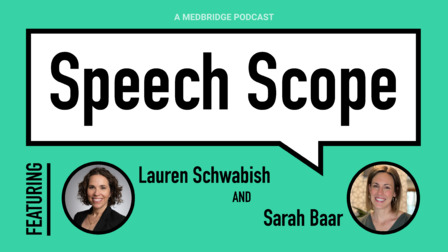
Working Memory: How Can I Address This in a Meaningful Way?
Sarah Baar and Lauren Schwabish

What Should SLPs Know About Cancer-Related Cognitive Impairment?
Sarah Baar and Patricia Geels

How Can SLPs and ATCs Work Together for Sports Concussion Management?
Sarah Baar and Tabia Pope

How Can We Help Patients With Functional Voice Disorders Find Their Voice Again?
Sarah Baar and Adam T. Lloyd

How Can Respiratory Muscle Training Impact Neurodegenerative Diseases?
Sarah Baar and Brooke Richardson

AI Speech Therapy: What Ethical Considerations Should I Think About?
Sarah Baar and Nina Benway

Return to Work and TBI: How Can SLPs Help?
Sarah Baar and Peter Meulenbroek

Dysarthria and Life Participation: Where Do I Begin?
Sarah Baar and Carolyn Baylor

Palliative or Just Good Care? Where Does SLP Fit In?
Sarah Baar, Marta Kazandjian, and Cynthia X. Pan
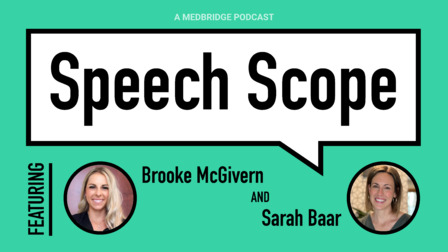
What Is Proactive Dysphagia Treatment for Head and Neck Cancer?
Sarah Baar and Brooke McGivern
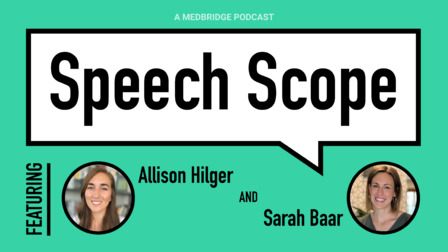
What’s the Colorado Motor Speech Framework, and How Do I Use It?
Sarah Baar and Allison Hilger
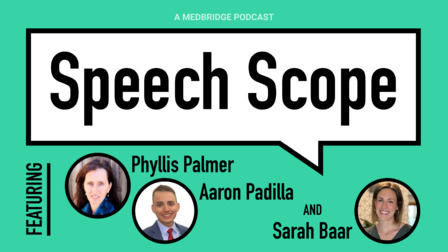
Dysphagia Decisions: What’s In and What’s Out?
Phyllis M. Palmer, Sarah Baar, and Aaron H. Padilla
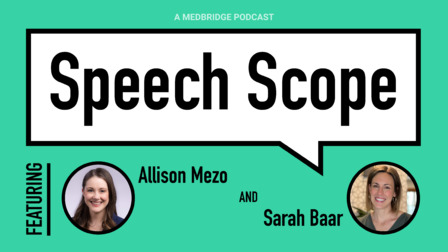
Anosognosia: What Are Key Clinical Assessment Considerations for SLPs?
Sarah Baar and Allison Mezo